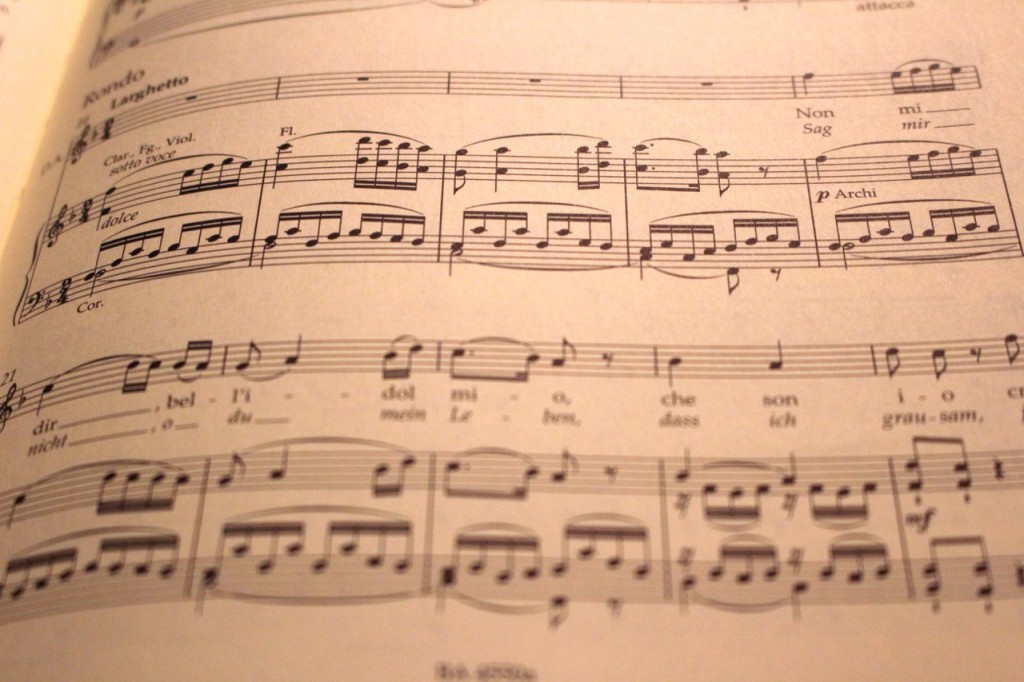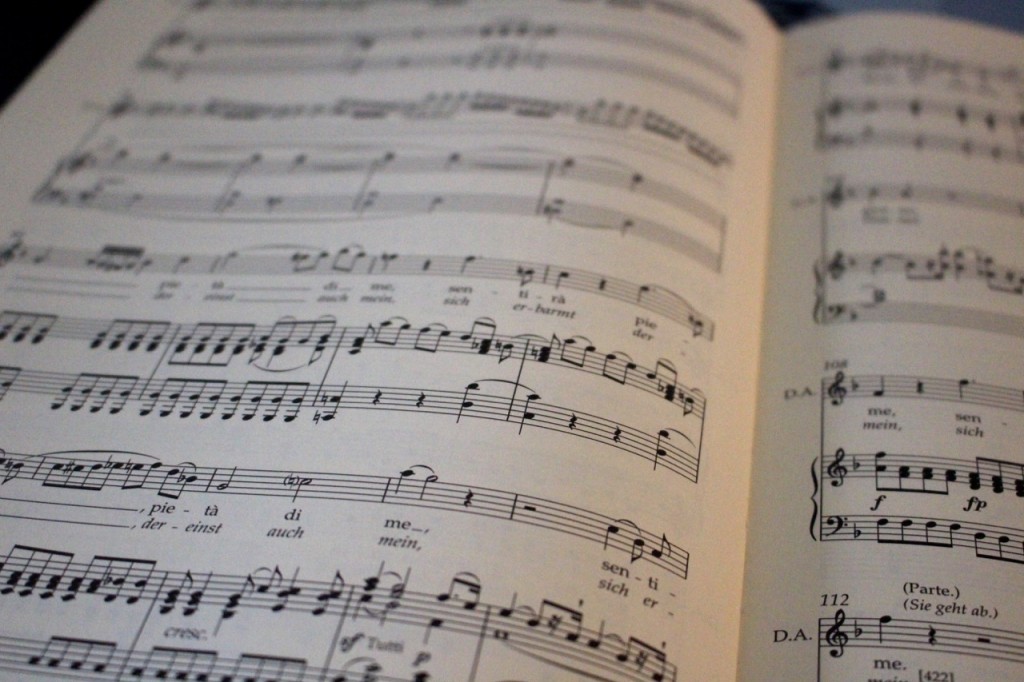
Tales from the score: Anna's innocence
If you love opera, you probably love Mozart’s Don Giovanni. The jury is out, however, on the question of whether or not you like Donna Anna. “Hmm, tough one,” say you. Mozart and Da Ponte start this story of Don Juan just after his encounter with Donna Anna, which means we can only infer information from the last pieces of their post-coital conversation. Anna is angry with Giovanni because he doesn’t want to stick around, but she runs off when she hears her father coming. When Anna sees Giovanni again, she’s with her boyfriend, Ottavio, and they both have already found her father dead. Anna silently puts it together that her one-night-stand was her dad’s killer, and when she goes to tell Ottavio, she realizes she also has to tell him how she knows Giovanni in the first place. Hence, all the juicy musical dishonesty in Mozart’s writing for Donna Anna. I skip ahead in the opera to bring you my examples.
Exhibit A:

It’s a bit from Donna Anna’s second aria, “Non mi dir”. She’s talking to Don Ottavio, who’s trying to politely bring up the topic of marriage (what a jerk), and Anna avoids giving him an answer by making him feel terrible for bothering her at all. Saying things like, “Don’t call me mean, you know I love you, please calm down or you’ll make me so sad I’ll die” (I paraphrase Da Ponte). This moment of genius by Mozart is what I like to call The World’s Most Beautiful Whine. Just look at Anna’s line, starting unnaturally high in her voice, and proceeding to smear up and down like a siren. Look at those last two notes on the word “dir”. They’re lies! Look at how shocked and appalled Anna is during those snappy chords under “i-o” (she’s in the middle of saying, “Don’t tell me that I’ve been cruel with you.”). She’s more likely saying, “Don’t tell me I’ve been cruel with you.” What a hussy. And then she gets into all this nonsense:
Exhibit B:

She’s now past directly making Ottavio feel terrible; now she’s doing it by saying “Well, maybe at least heaven will have pity on me.” The blurry notes at the top of the page are incessant runs (that are wickedly impressive) on the words “will feel”, so Mozart is clearly driving that point home. But at the bottom of the page, that big fat “pietà di me” (“pity on me”), that’s the real kicker. It’s overkill. It doesn’t need to be that high. But people who aren’t telling truths speak with weird inflection. Like a random, additional high A on the word “me” (either language works). See, I think that Mozart created Anna as a character who wants to maintain privacy over a few details of her encounter with Don Giovanni. I’m not saying she was into it and then went screaming assault, but I do think there’s some musical equivalence to the saying, “the lady doth protest too much, methinks.”
I just freaking love Mozart. Says the beloved and wise Canadian director Tom Diamond, “Mozart is the greatest stage director who ever lived.” Here’s Carol Vaness singing the whole aria in 1990:


Comments